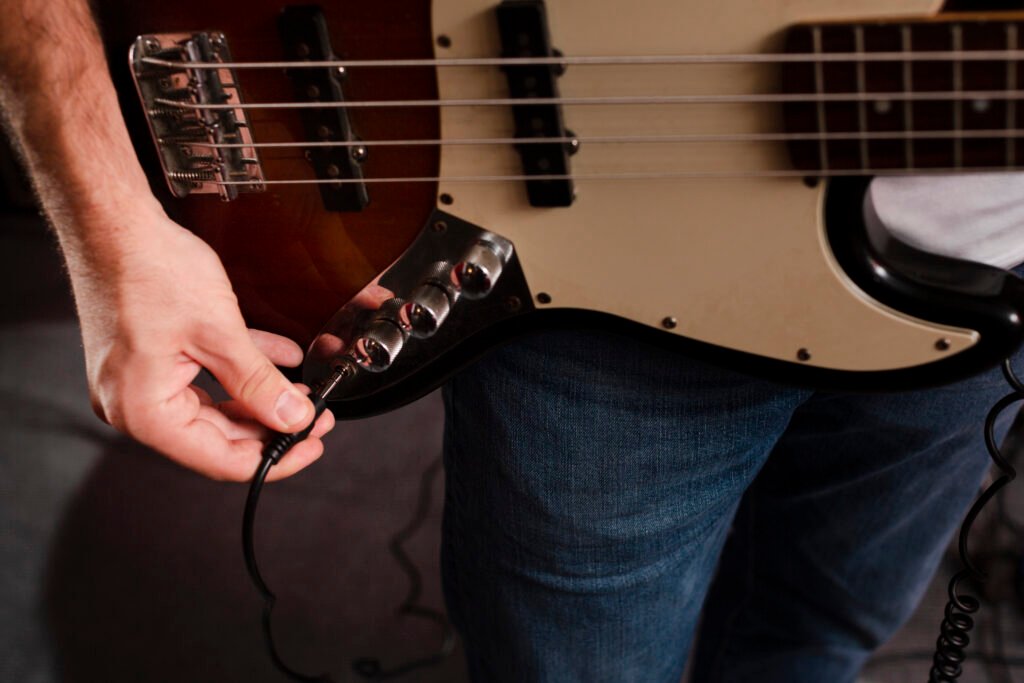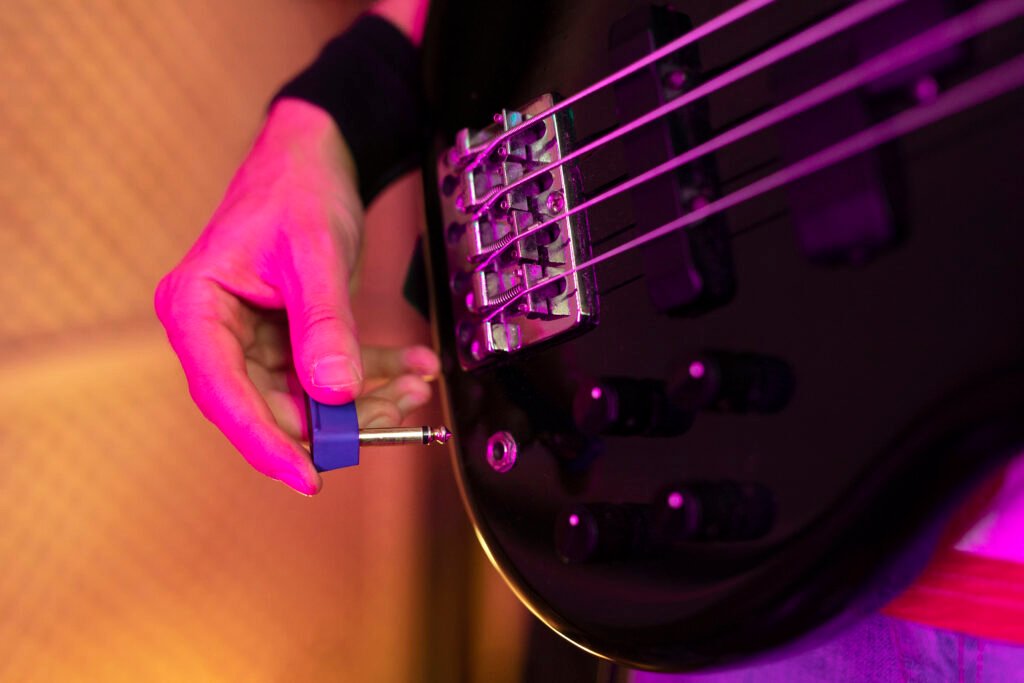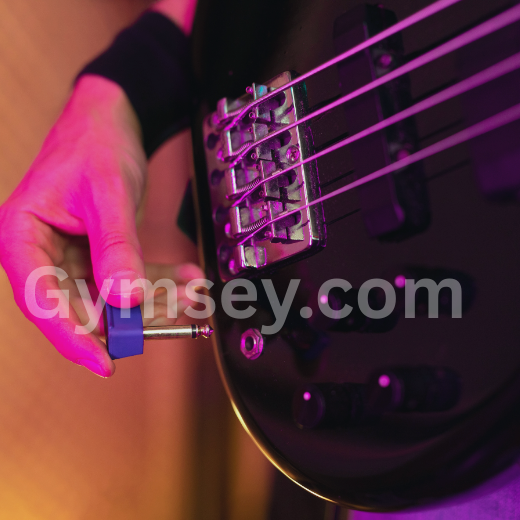If you’ve ever been in the middle of a jam and your bass starts making that annoying buzzing sound, you know how frustrating it can be. The good news is—most buzzing issues have a clear cause and an easy fix. Whether you want to know how to fix bass guitar fret buzz or stop an electrical hum, we’ll walk you through every solution players in the U.S. search for.
1. How to Fix Bass Guitar Buzz on Certain Frets
Buzzing only on specific frets? That’s usually a setup or fret height problem. Let’s go step-by-step to get rid of fret buzz on bass guitar and make your tone clean again.
Solutions:
- Check for uneven frets using a fret rocker tool.
- Inspect neck relief—too flat or back-bowed can cause localized buzz.
- Adjust bridge saddle height for the affected string.
- Examine nut slots to ensure they’re not cut too low.
- Replace worn strings that no longer vibrate evenly.
- Clean the fingerboard to remove grime affecting playability.
- Press just behind the fret, not on top.
- If needed, get a professional fret leveling.
2. How to Stop Buzzing on Bass Guitar When Plugged Into an Amp

If your bass is quiet unplugged but buzzes when connected to an amp, the issue is likely electrical.
Solutions:
- Try a different instrument cable to rule out a bad one.
- Switch to another power outlet to avoid grounding interference.
- Check the ground wire inside the bass control cavity.
- Test with a multimeter for continuity issues.
- Add copper shielding tape to the control cavity and pickup routes.
- Touch metal hardware—if the buzzing changes, it’s grounding.
- Use a noise suppression pedal for temporary control.
- Get professional wiring repair if the issue persists.
3. How to Stop Bass Guitar Strings from Buzzing with Better Technique
Sometimes the problem isn’t the bass—it’s the way you’re playing it. Here’s how to stop string buzz on bass guitar simply by improving your fretting technique.
Technique Fixes:
- Fret just behind the fret wire, not in the middle.
- Apply enough pressure to fully engage the note.
- Avoid plucking too hard, which increases string vibration range.
- Keep your wrist relaxed for better control.
- Practice consistent finger pressure on every note.
- Mute unused strings with your fretting or plucking hand.
- Warm up your fingers to improve precision.
- Replace old or dirty strings for a cleaner tone.
4. Environmental Factors That Cause Fret Buzz on Bass Guitar

Wood reacts to environmental changes—meaning your bass can develop a buzz just from where it’s stored. Here’s how to prevent it.
Prevention Steps:
- Maintain 45–55% humidity in your storage space.
- Use a humidifier or dehumidifier depending on the season.
- Keep your bass in a hard case when not in use.
- Avoid direct sunlight or extreme cold.
- Let the bass acclimate before playing after travel.
- Schedule seasonal setups to keep neck relief in check.
- Clean the neck regularly to prevent warping.
- Document setup changes so you know when adjustments are needed.
5. Is a Little Buzz Actually Good for Your Tone?
Believe it or not, some bassists want a touch of buzz—it can give a “growl” that works well in certain styles.
Balanced Advice:
- Jazz and funk often benefit from controlled buzz.
- Low action can make the bass faster to play but adds more buzz.
- Too much buzz can hurt sustain and clarity.
- Dial in a middle ground that works for your genre.
- Experiment with how much buzz you want in your tone.
- Record yourself to hear the difference.
- Use EQ to control how buzz is heard in the mix.
- Keep it intentional, not accidental.
6. When to Let a Pro Handle Your Buzzing Bass Guitar

Sometimes knowing how to stop buzzing on bass guitar isn’t enough—some problems need a luthier’s skills.
Signs You Need Help:
- Buzz remains after all DIY adjustments.
- Multiple frets are uneven.
- Neck has a visible twist or severe bow.
- Nut slots are cut too deep.
- Electronics keep humming despite shielding.
- Bridge hardware is misaligned.
- Action is inconsistent across strings.
- You want the lowest possible action without buzz.
- You need a full professional setup.
Conclusion
Buzzing on a bass guitar can be caused by uneven frets, poor setup, bad technique, environmental factors, or electrical issues. By following these tips on how to fix bass guitar fret buzz, improving technique to stop bass guitar strings from buzzing, and making setup adjustments, you can enjoy a clean, powerful tone. If nothing works, a skilled luthier can give your bass a professional setup that keeps it buzz-free for months.
Want to make sure your guitar always sounds perfectly in tune? Check out our step-by-step guide on how to set guitar intonation for a cleaner, more professional tone.



